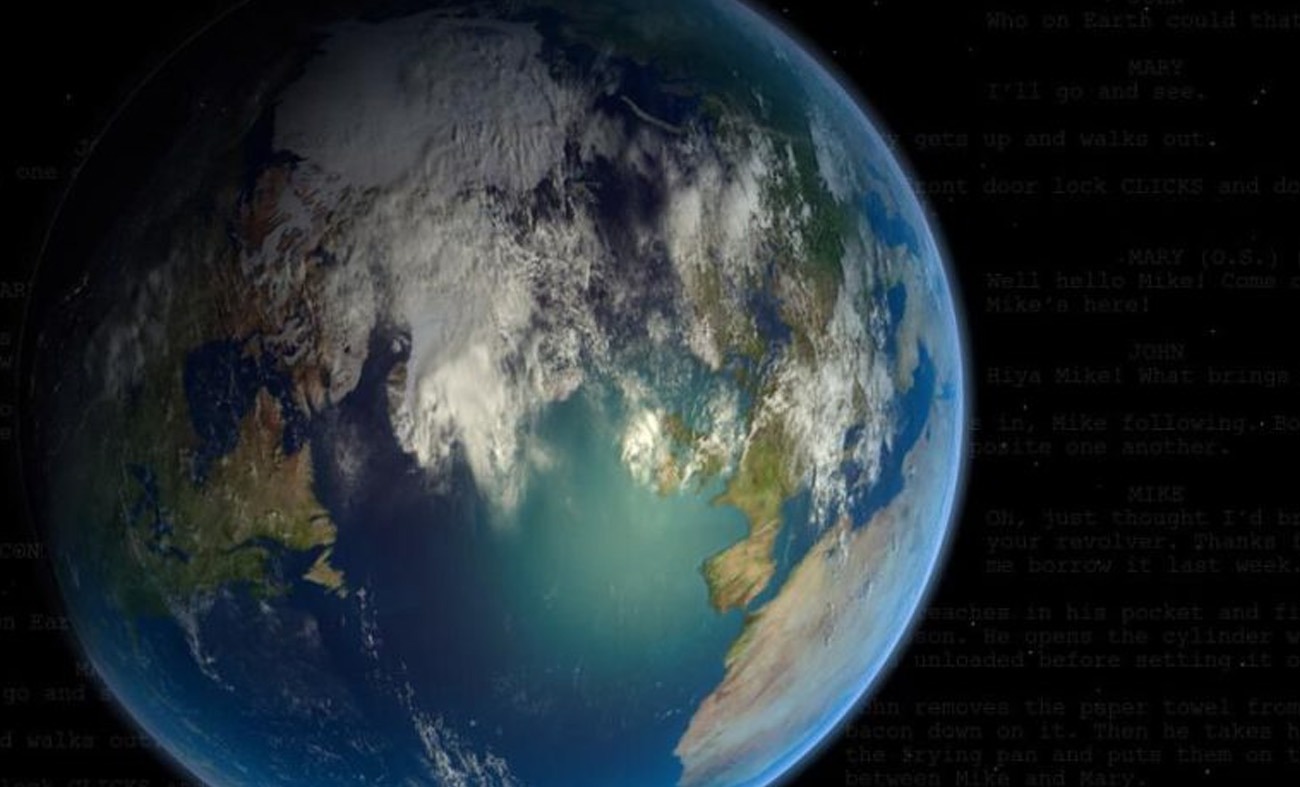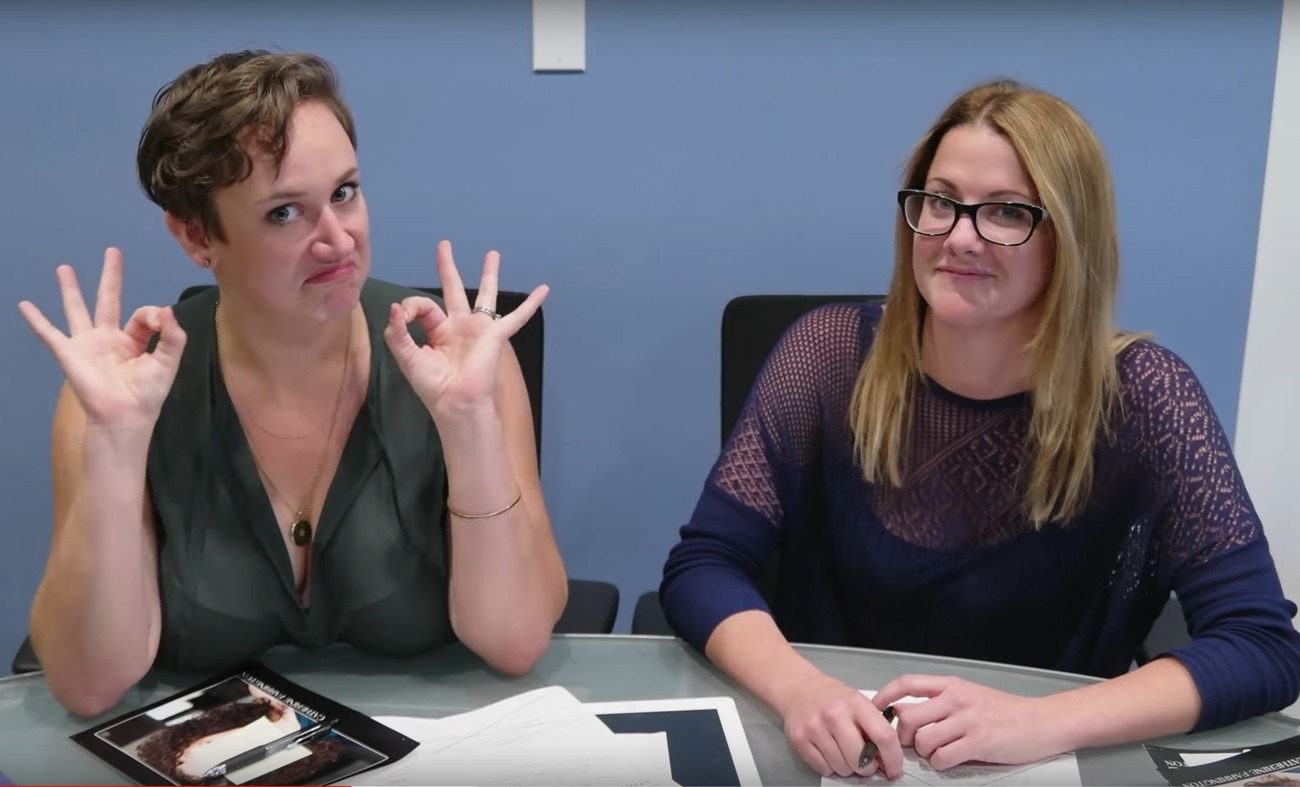
Create The Script’s World
Danny Manus has written this piece on how to Create The Script’s World and become the “God” of your script.
Danny is an in-demand script consultant and founder of No BullScript Consulting. You can follow Danny on Twitter @dannymanus.
You must allow the reader to know what world they are in, futuristic dystopian world, a period piece, or modern day high school drama, within the first 10 pages.
However, it doesn’t stop there. When you Create The Script’s World and start understanding the rules that govern that world, you will then be able to find logical solutions to your characters problems later on in the story. Can people fly away? Can they go to the police? Is that item available in this world? Can they say or do that here? All these things come from how you Create The Script’s World.
These are 5 tips on Creating The Script’s World.
Create The Script’s World
1. Be an All-Knowing God.
You need to know everything about your world so you know what to highlight to make everyone fall in love with it like you have. Especially when writing sci-fi, fantasy, adventure or period pieces.
When designing a world or setting that is outside present day norm or heightens what we know as normal (and all stories should somehow heighten what’s thought of as normal), you need to think of everything; location, time period, the landscape, the color scheme, the mood, the style of homes, the state of technology, methods of communication, transportation, religion, government, legal systems, law enforcement, weaponry/defense, how people dress, speak, eat, date, have sex, etc.
If you haven’t at least thought of these things and more, you haven’t created a world – you’re just writing a scene. One of these things may help you flesh out who your character is or what their place is in the world. Or they may help you resolve problems in the story you may find later. When all else fails, go back to the basics of your world and see how they can guide you.
These details are not only what’s going to suck us in and make us believe that this world actually exists, but it’s also what’s going to show off your voice, creativity and originality. And knowing how and when to introduce them is equally important. You may not even include most of them in your story, because you don’t want to read too novelistic, but you should know them just in case.
2. Explain Your Platypus First.
In other words, try to set up the most implausible or outlandish part of your world first. The part that is going to require the audience’s suspension of disbelief or whatever the X-Factor of your world is. What makes it different from all other worlds or defines the state of normal for your world. Not that Earth is defined by its platypus…but wouldn’t it be great if it was?
For example, it will be much easier to believe an alien world or fantastical parallel universe exists when we experience a taste of THAT world first. Whereas, if you start your script on plain old Earth in 2015 and then out of nowhere on page 14 we’re suddenly on Planet Gorlock, it will not seem as believable or natural because it’s such a different world than was previously introduced. If you set up the unfamiliar thing the audience will have to swallow and accept first, it will put us in the right mindset for what’s to come. Numerous sci-fi or fantasy movies – Independence Day, Star Trek, Contact, Galaxy Quest, Gravity, Man of Steel, etc. – start with a shot of space or an alien setting to set up that world first.
3. Know Thy World’s Commandments.
A big part of creating your world is setting up the rules that govern it and keeping them consistent. Not just the rules of the location, but also the rules of your characters, their powers, abilities, a killer’s M.O., the rules of your zombies, aliens, ghosts or demon possessions, etc. Defining some of your rules can also help set the tone for the project and could even play into the character’s goals and obstacles.
For instance, if one of the rules of your world is that no one is allowed to verbally question the government and those who do will be put to death, that immediately sets up what type of world it is, the darker and overbearing, authoritarian undertone of the world, and possibly what perilous situation your hero is going to find herself.
Setting up the rules in your first act prevents what I call the “HUH?” moments later on in the script. If you don’t set up the rules and stay consistent to them, then certain actions or developments later on may feel random or out of the blue and make it seem like you’re making up the world as you go along to fill plot holes. Your character can’t suddenly be able to teleport on page 72 if they’ve never done it before and that hasn’t been set up previously.
4. One Must Know Their Place in the World Before Seeking to Change It.
One of the most important things about your character and their set up, is making it clear what their place or function is within that world. How they fit in. What role do they play? How their existence affects that world (and vice versa) throughout the story. When introducing your characters, especially your protagonist, look for ways to do so that illuminates something about the role they play and how they feel about their role or world. Whether that’s some big new planet in the years 3035 or just their family and home in Los Angeles, 2015.
Is your character the hero, the villain, the savior, the cog, the catalyst, the conformist, the rebel, the fighter, the lover, the victim? Know your character’s role within the story, why they must be the one to play that role, and how their role changes over the course of the story. Even in smaller, low-concept family dramas, knowing your character’s place or role within that dynamic and world will help set up their arc and how their world is going to change.
Two great questions to always ask about your character to help define their place in the world is – Why him (or her)? And why now?
5. There’s Nothing Funny about Minneapolis.
The setting of your story can often tell us a great deal about your characters and can often become a character itself. Escape From New York would’ve been very different if Kurt Russell had to escape Connecticut instead. Sex and the City would have been a totally different show if it took place in Pacoima. And The Hangover would’ve been a whole different kind of comedic adventure if it was set in the Bible Belt. Locations matter. They not only set up a tone and a voice and speed to your dialogue and action, but there are certain types of people, customs and obstacles that are associated with different cities or countries. Use them to your advantage.
I had a client who set their outrageous comedy in Minneapolis. Now I like Minneapolis, but there is literally NOTHING funny about it. NY, LA, Chicago, Mississippi, Texas, Florida, West Virginia, Fargo, Wisconsin, Vegas – there’s something interesting or funny that comes to mind when thinking of those locations. There is nothing funny about Minneapolis. So when deciding where to create your world, not matter what the genre, choose a place that ADDS something to your story. And if you’re not from that city or country, you better do the research to make it feel genuine and not like a bad tourist bus ride.
Source for how to Create The Script’s World from Danny Manus

